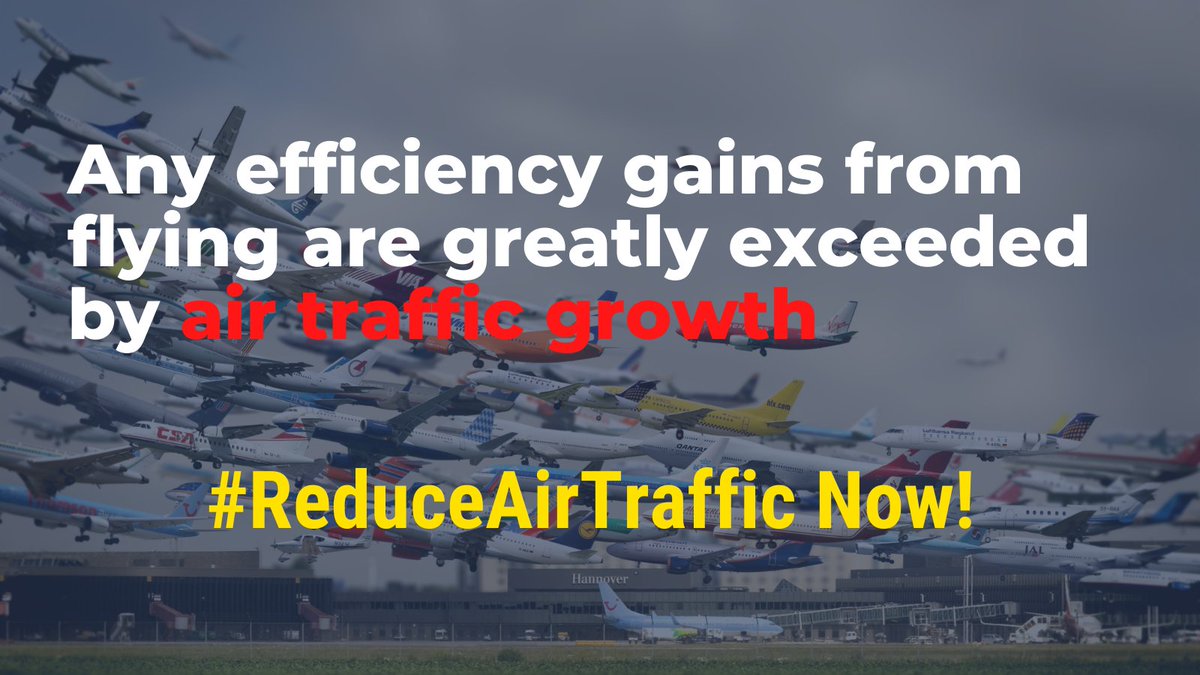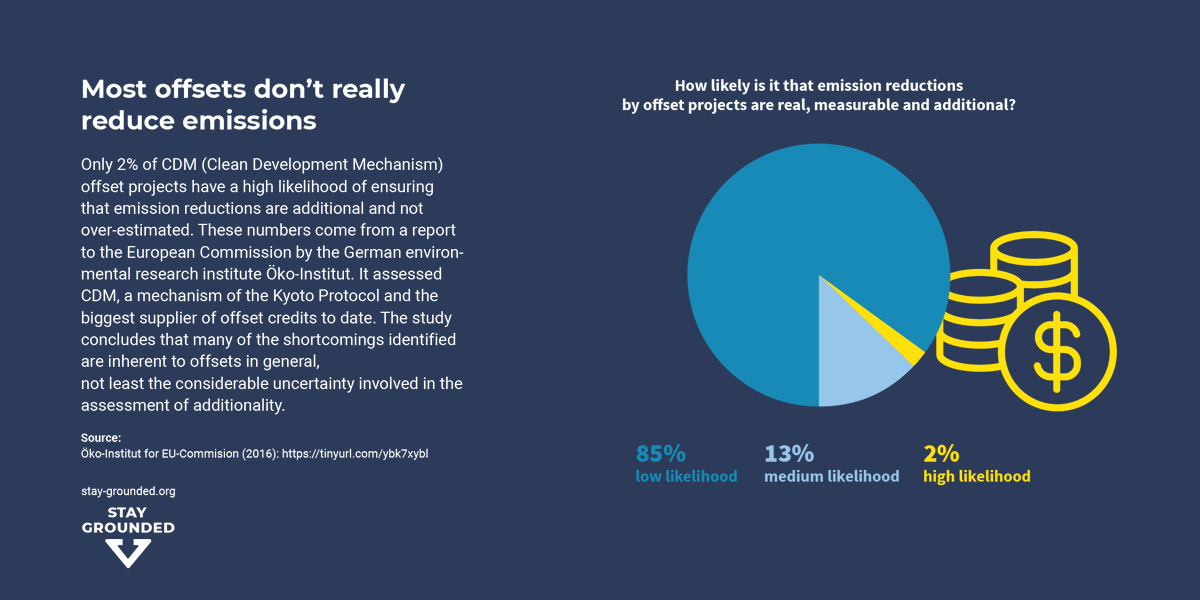
#Hydrogen is touted by some as THE great climate remedy.
Parts of the #aviation industry are also telling us that we will soon be flying on hydrogen.
Why this is not true - a thread. 🔽 🧵
Parts of the #aviation industry are also telling us that we will soon be flying on hydrogen.
Why this is not true - a thread. 🔽 🧵

The basics: in order to use hydrogen as a power source for aircraft instead of kerosene it could either be burned in a jet engine or used to feed a fuel cell to generate electricity to power a propeller.
Hydrogen is produced from other energy sources, has a significant energy loss during the process and is usually stored in liquid form at −253 °C.
Some hydrogen "colours" (= production methods) are: grey (produced from methane or coal), blue (grey hydrogen + carbon capture & storage), green (produced via electrolysis from water with renewable electricity). The last one is the only more or less "sustainable" kind.
Hydrogen and aviation: Airbus studied hydrogen aircraft in the 2000s but shelved their plans in 2010 due to technical issues. In 2020, they then announced their intention to restart development of new hydrogen aircraft that could enter into service in 2035.
Airbus are studying four concept aircraft and will select one by 2025. Other manufacturers are also developing small hydrogen aircraft that may be certified in the 2020s.
But: there are several problems with flying on hydrogen!
Problem 1: hydrogen aircraft are unable to meet climate targets in time and quantity
Even if the schedule announced by Airbus in 2020 is met, it will be too late. According to @UNEP, global GHG emissions must be reduced by 55% by 2030 and 90% by 2050 for staying below #1point5.
Even if the schedule announced by Airbus in 2020 is met, it will be too late. According to @UNEP, global GHG emissions must be reduced by 55% by 2030 and 90% by 2050 for staying below #1point5.
The design of a whole range of aircraft and the conversion of the fleet to hydrogen would start too late and take too long to meet this goal. Aircraft have a typical lifetime of 25 years.
Also, hydrogen would be best suited for regional and short- to medium-haul flights. For long-haul flights, which contribute about one third of aviation emissions, hydrogen would not economically compete with synthetic fuels before 2050.
Recently, Airbus stated that a medium-haul aircraft would not be available before 2050, so, before that time hydrogen could potentially displace less than 20% of CO2 emissions.
Problem 2: hydrogen planes would still have significant non-CO2 impacts
The total climate impact of flights is 3.1 times that of CO2 alone. With hydrogen the total climate impact could be reduced by only 50-75% if it's burned in turbines, 75-90% if it's used in fuel cells.
The total climate impact of flights is 3.1 times that of CO2 alone. With hydrogen the total climate impact could be reduced by only 50-75% if it's burned in turbines, 75-90% if it's used in fuel cells.

Problem 3: producing green hydrogen would require huge renewable electricity resources
If 40% of the aircraft fleet were converted to liquid hydrogen in 2050 and the rest used e-fuels, the resulting electricity demand would be equivalent to the current total global electricity production and about four times the production of renewable electricity in 2018.
As demand for electricity grows so does the risk that renewable electricity supply will not be able to match it, which will increase the risk of using non-renewable power.
Problem 4: financial support from governments is unjustified - but polluters should pay
Airbus wants "support from governments" to "encourage the use of sustainable fuels and accelerate the
renewal of aircraft fleets".
Airbus wants "support from governments" to "encourage the use of sustainable fuels and accelerate the
renewal of aircraft fleets".
Most people rarely or never fly. So it would be unfair for them to subsidise research and development, particularly as the success of hydrogen is uncertain, timescales are lengthy and any significant deployment of hydrogen aircraft would be a waste of limited renewable energy.
Bottom line: hydrogen's potential to mitigate the
climate impact of aviation is less than 10% of its total impact by 2050.
This is due to the long timeframes for development and deployment as well as hydrogen's non-CO2 impacts and energy demand. In addition, funding is unclear.
climate impact of aviation is less than 10% of its total impact by 2050.
This is due to the long timeframes for development and deployment as well as hydrogen's non-CO2 impacts and energy demand. In addition, funding is unclear.

You can find our hydrogen and aviation factsheet and all our #greenwashing factsheets on our website: stay-grounded.org/greenwashing/ 

It's not just the false promise of flying on hydrogen: stop #Greenwashing - #ReduceAirTraffic now!
The aviation industry continues to shirk its responsibility for #ClimateAction using false promises.
👉 Support the petition: stay-grounded.org/stop-greenwash…
The aviation industry continues to shirk its responsibility for #ClimateAction using false promises.
👉 Support the petition: stay-grounded.org/stop-greenwash…

• • •
Missing some Tweet in this thread? You can try to
force a refresh











